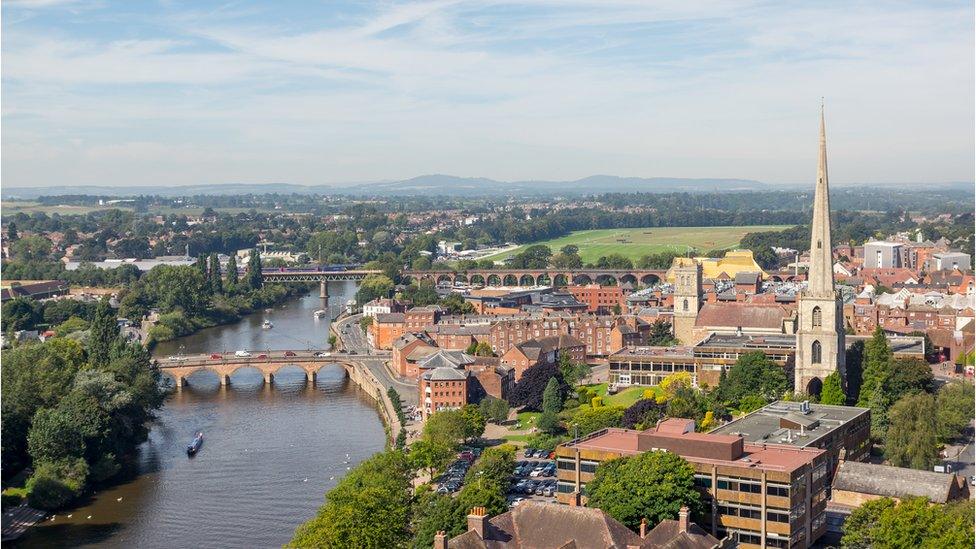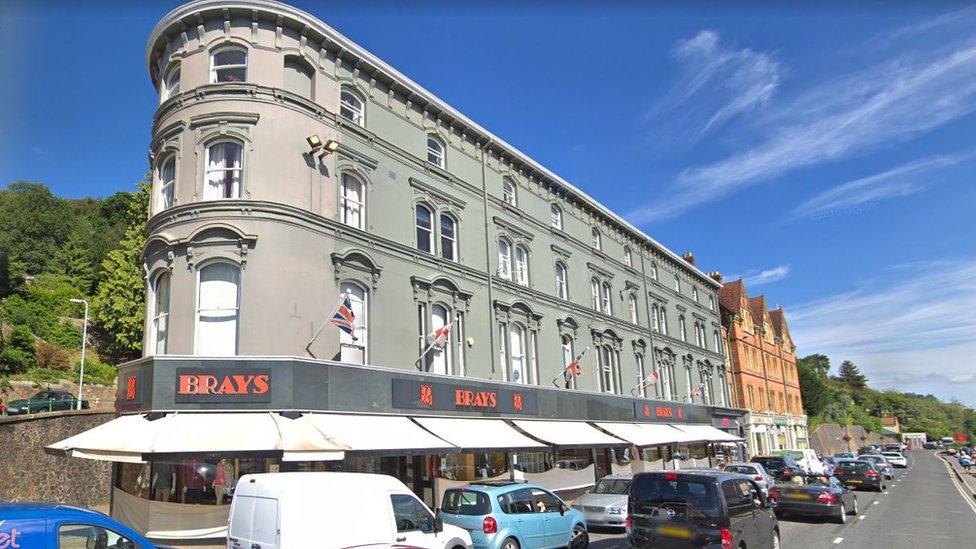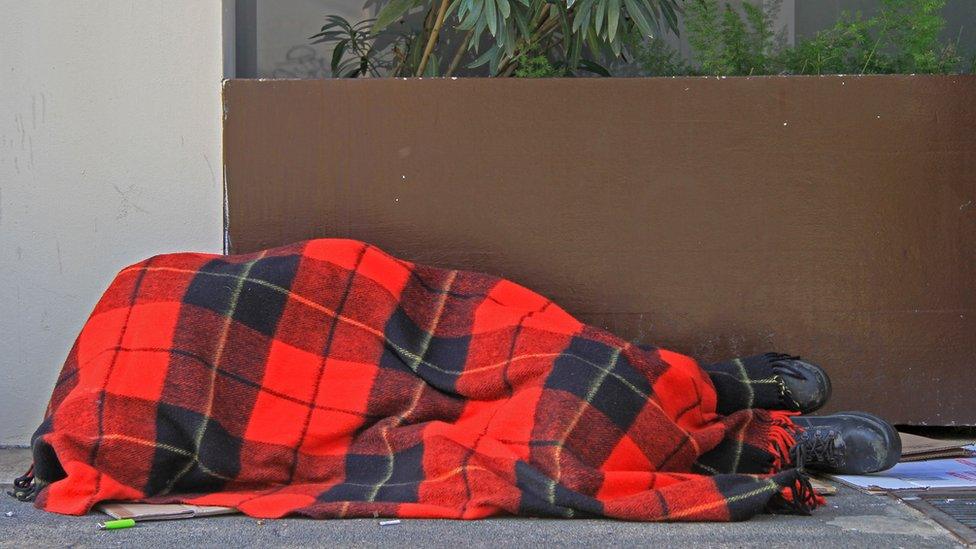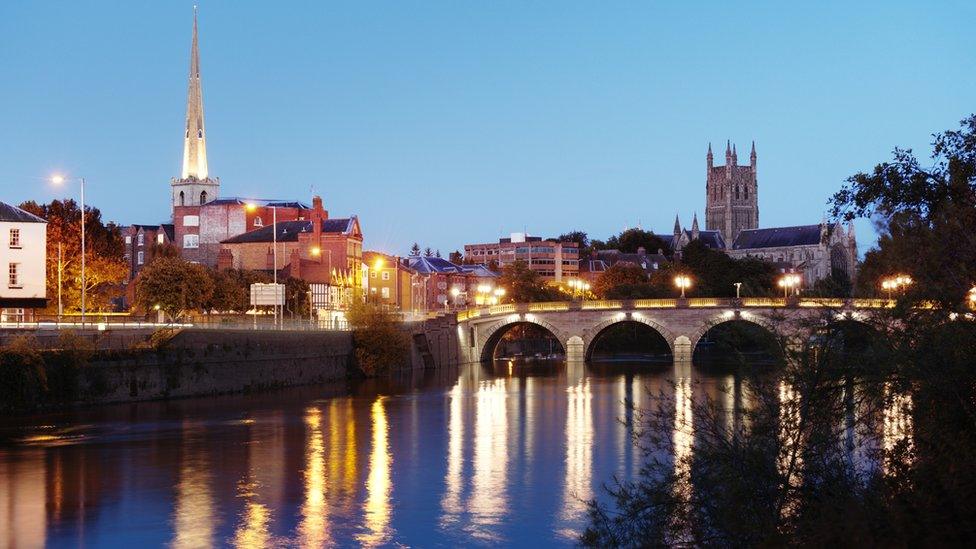Rough sleeping is not just a big issue in the big city
- Published

Outreach workers in Worcester are expected to confound any perception rough sleeping is the scourge of the big city alone
Cold comfort?
As winter strengthens its icy grip, figures due out this week are expected to confirm the numbers of people sleeping rough are rising fast.
Outreach workers in Worcester are also expected to confound any perception this is the scourge of the big city alone.
Towards the end of every year, our metropolitan, unitary and district councils are required to conduct a head count of rough sleepers in their areas and then publish them at the end of January.
But the bald statistics may seriously understate what's really going on.
The outreach workers have told the BBC the numbers in Worcester reflect only those rough sleepers seen on that one night when the count was taken, and exclude people even if they were walking with rucksacks. This is the same for counts in all towns and cities.
Chilling statistics
A snapshot of the figures published by the local authorities in some of our rough sleeping hotspots one year ago, drawn from their 2017 counts, confirms the rising trend.
In Birmingham, 20 rough sleepers were counted in 2014 and 57 three years later
Warwick had 14 people sleeping rough in 2014, according to the count, and 21 in 2017
While in Walsall, five people were logged as rough sleepers in 2014 and 20 in 2017
One conspicuous exception to the rule was Worcester, where they counted 12 in 2017 compared with 22 in 2014.
But even here, outreach workers are braced for the tide to turn with a vengeance when the numbers come out from last year's count.
What's more, they say rough sleepers account for only a small proportion of the people who are homeless.
Many of them are sofa-surfing or living in temporary accommodation including B&Bs.
A truer indication of the rough sleeping numbers may come from local councils' severe weather emergency protocols, which take effect when temperatures drop towards freezing, as they are this week.
Earlier this month, Worcestershire's protocol registered 78 potential rough sleepers.
Human cost

The body of Joby Sparrey was found in a shop doorway in Malvern on Christmas Day
But numbers alone fail to convey the terrible personal toll this takes in terms of lives either drastically diminished or lost altogether.
Two people have died recently in the genteel Worcestershire spa town of Malvern.
The body of Joby Sparrey was found near a shop doorway there on Christmas Day.
He had been sleeping rough for about six weeks.
In October the body of another rough sleeper, Remigiusz Boczarski was found in a local quarry.
Hostels and street cafes are doing what they can.

As the scale of the homelessness crisis has grown, the squeeze on local government budgets has continued to tighten
So too are charities who take referrals for single people and childless couples at risk of homelessness.
In 2015, Worcestershire County Council provided funding worth £1.2m to St Paul's Hostel. The council has now switched it to another charity, CCP. And that's not all that's changed. The squeeze on local authority budgets means their funding now stands at £300,000 a year and is about to be reduced to £100,000.
The county's six district councils are working together to help bridge the funding gap until September.
Beyond that there is no sign of a long-term plan.

Faced with rising housing demand, Worcester City Council is looking at buying or leasing 62 flats and houses
Meantime though, several of those local authorities are considering radical initiatives of their own.
Faced with housing demand which has almost doubled over the past year, Worcester City Council is looking at buying or leasing 62 flats and houses, starting with 12 this year.
James Pearson is BBC Hereford and Worcester's political reporter, so he knows the people at the sharp end of this housing crisis as well as the local political leaders who are trying to do something about it.
Having declared the end of austerity, the government is now setting out its outline council funding plans for the year ahead.
James will be reporting from the front line, where that ambitious government claim is being put to its severest test.
Join me @PatrickBurnsBBC, external for this week's Sunday Politics Midlands at 11.00 GMT on BBC One this Sunday, 3 February 2019.